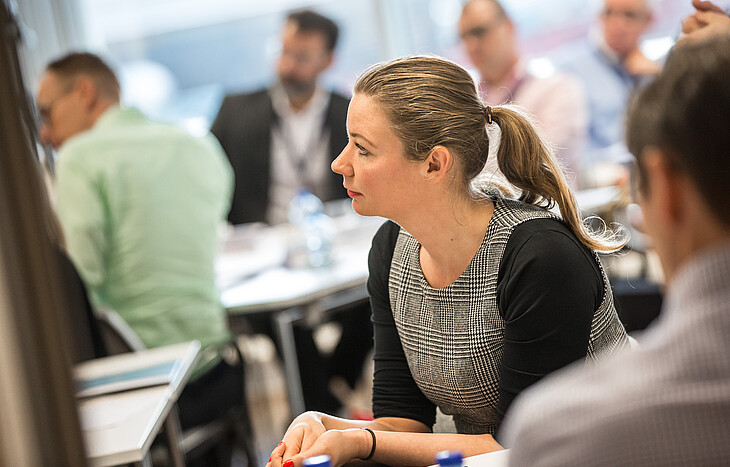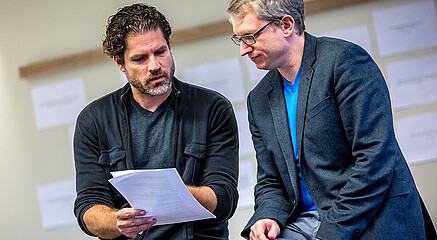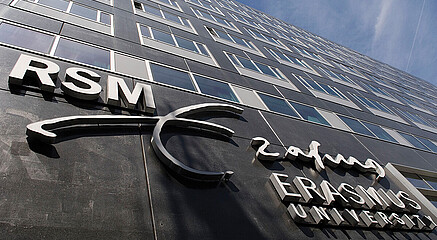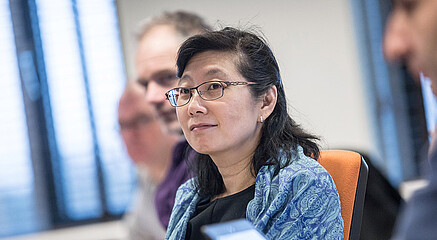

It's essential that communications professionals first understand what managers and directors are trying to achieve – and the processes in the business – before they are able to communicate this information effectively throughout the organisation. This requires a good understanding of general management. You will perform detailed analyses of a range of business cases to aid your understanding; each one focuses on a different functional area of management.
The value of the general management perspective becomes particularly clear to communicators when running a function (like Media Relations) or department (like Corporate Communication); for it is here that the interplay of different functional imperatives—with their often conflicting views—becomes most apparent. Thus, this course focuses on the challenge of effectively combining the requirements of each functional area with the overall needs of the enterprise.
This programme is offered by Corporate Communication Centre BV. For more information about the legal structure of Rotterdam School of Management, Erasmus University, visit this page.
The general manager is responsible for the management of the function or department. He or she is ultimately responsible for the success or failure of the area of the organisation—whether it is for-profit or not, whether it is domestic or international, whether it is small or large. Thus, general managers throughout the organisation can include CEOs, entrepreneurs in start-ups, leaders of business units in larger companies, executive directors of charitable organisations, presidents and prime ministers of countries, and, for the purposes of this course, heads of corporate communication departments or functions. General managers are also leaders—the people who set the organisational purpose and create an environment where success happens.
The job of the general manager as leader requires proficiency in three important and distinct areas:
a) Critical thinking (about various strategies and business models);
b) Innovation and creativity (by exploring opportunities, understanding discontinuities, and crafting strategy);
c) Intuition.
Although we rely on frameworks to guide our thinking wherever possible, there is a certain "messiness" in the general manager’s job that cannot be ignored.
The complexity and responsibility of the general manager’s job make it one of the most important in an organisation. Accordingly, many, perhaps most, students will aspire to such positions at some point in their career. This course will lay a foundation about the general manager’s job that can be built on throughout the rest of your career.




This course offers professionals with three or more years of work experience a highly flexible learning experience that fosters leadership, strategic thinking and corporate responsibility. The course focuses on your professional experience through collaborative-style learning and business problem-solving to facilitate your career progression.
This course is designed for:
Corporate communication professionals
General managers
Executives, consultants and analysts
Professor Paul Argenti has taught management, corporate responsibility, and corporate communication starting in 1977 at the Harvard Business School, from 1979 to 1981 at the Columbia Business School, and since 1981 as a faculty member at the Tuck School.

3-5 June 2025
09.00-17.00

€ 3,400 including tuition, course material, lunches and refreshments. This fee does not include hotel accommodation.

The programme takes place in the Bayle building on the Woudestein Campus of Erasmus University Rotterdam.

The participant can be substituted by someone from the same organisation on the same course without extra costs.


Programme officer

Programme & Admission Advisor